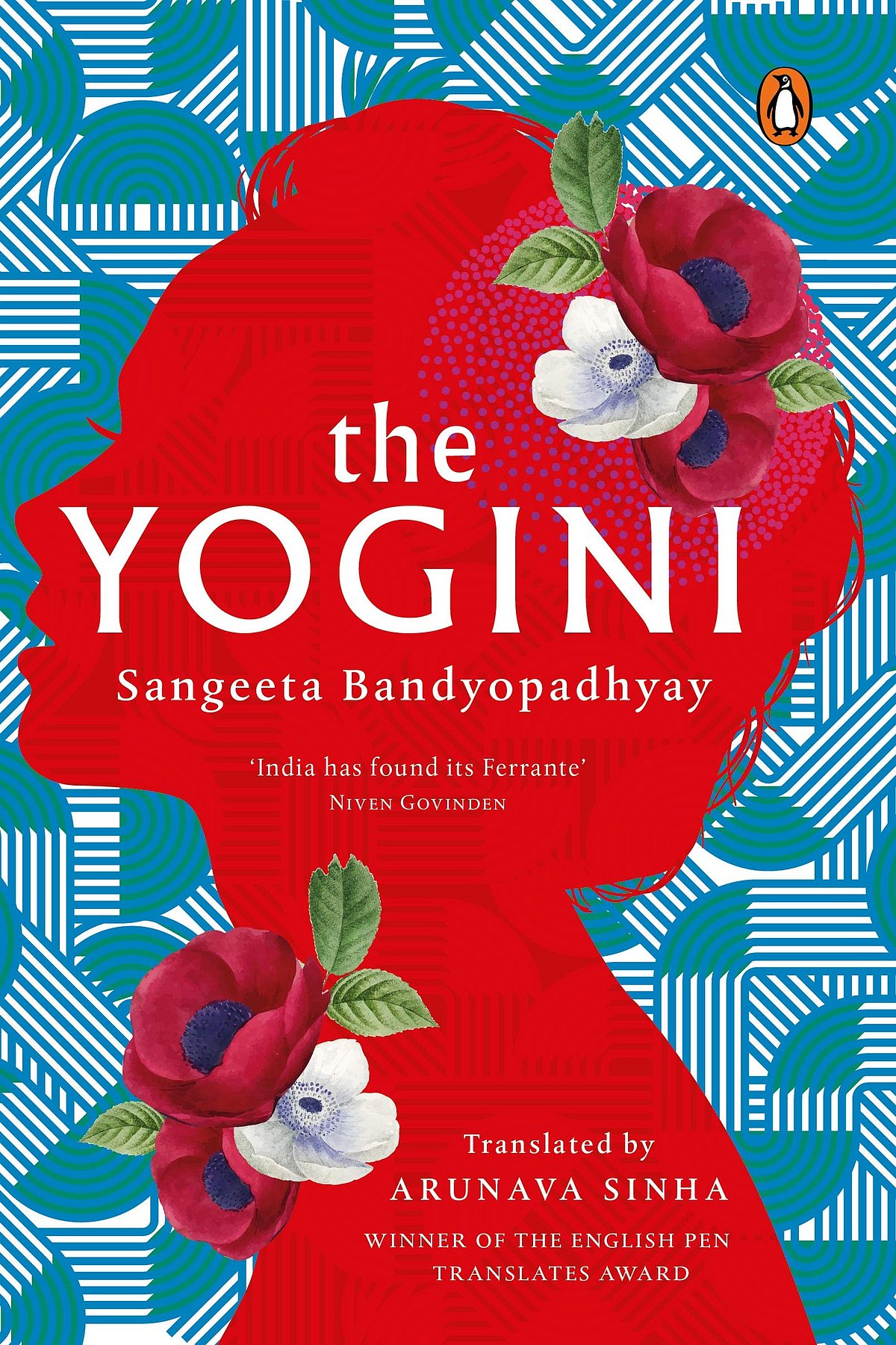Turns of Fate

Homi’s life isn’t going anywhere. In her mid-twenties, she has a good job in TV journalism, is married to a man she chose, and they both share a passionate marriage. Although she doesn’t have close friends, her husband Lalit’s circle has become her own and it seems as though there’s ample company and merriment in her life. Yet, despite these pleasures, Homi feels that her life isn’t her own. Rather, she feels that her life is controlled not by her, but by an external force—fate. This angst of not having agency over one’s life drives The Yogini by Bengali writer Sangeeta Bandyopadhyay.
Translated into English by Arunava Sinha (who also translated Bandyopadhyay’s Panty) under a PEN Translates Award, the novel is, in a sense, a surreal coming-of-age story. It is Homi’s quest for meaning in her life, and in herself. One evening, just before her wedding anniversary, Homi begins to be stalked by a grotesque hermit, who is her fate personified. His recurrence makes her question her life and relationships, leaving her unenthusiastic about both work and sex. She begins to act irrationally—saying cruel things to those she cares for and wandering the streets in a daze. But while she seems to be in search of clarity, people around her think she is becoming mentally unsound.
Imran Khan: Pakistan’s Prisoner
27 Feb 2026 - Vol 04 | Issue 60
The descent and despair of Imran Khan
There remains a constant tension between the reality of the events in Homi’s life and the possibility that they are visions of her fragile and fraying mental state. When she stumbles upon a palm reader’s shop and asks to have her palm read, the man says to her, ‘Your entire life is a product of your imagination, madam’. The advice quickly makes her detach herself from the reality she knows. She quits her life of obligations—her marriage, her eccentric mother, caring for her comatose father—and finds herself in Banaras. We never learn how exactly she gets there. Here, she is taken in by a Tawaif family, among whom she begins to find answers to her own existential questions.
The Yogini seems to be a commentary on the way women’s agency and sexuality are often bound by invisible pressures, and not necessarily by overtly abusive conditions. It focuses on Homi’s anxieties, rather than her sufferings. In that, it explores an often overlooked aspect of women’s subjectivity. But, ultimately, much of the book feels contrived. Although the book is driven by Homi’s interiority, we never get a sense of a voice that is removed from more authorial musings.
The book opens with a short note on the word ‘niyoti’, translated as fate. Although the tendency is to understand fate as ‘the opposite of free will’, the note observes that there are other philosophical implications of the word—the absence of agency or even the ‘illusion of being bound to a particular time and space’. Homi’s journey takes on these multiple meanings and she is self-conscious of this. ‘Fate is stalking me,’ she says, ‘If only I could get a glimpse of myself outside its influence, just a single flash, a single free moment.’ Statements like these colour the novel and so it is difficult to accept Homi as a fleshed-out character, and not a symbol. Indeed, there are different relationships—like the ones Homi has with her parents—that are abandoned too abruptly to come across as even irresolution.
Bandyopadhyay has garnered a reputation among Anglophone readers for writing bold and quirky stories. The Yogini, however, falls back on done-to-death tropes of a woman seeking answers in occult and her behaviour being deemed crazy. Worse, when Banaras appears as the site of resolution, if not enlightenment, it is as though we are back in a Hollywoodised vision of Indian spirituality. The heightened sex scenes, too, though intended to be passionate feel unconvincing. Teetering on the line between the real and surreal, the book fails to claim either space fully—events that should have haunted us fade away quickly.

